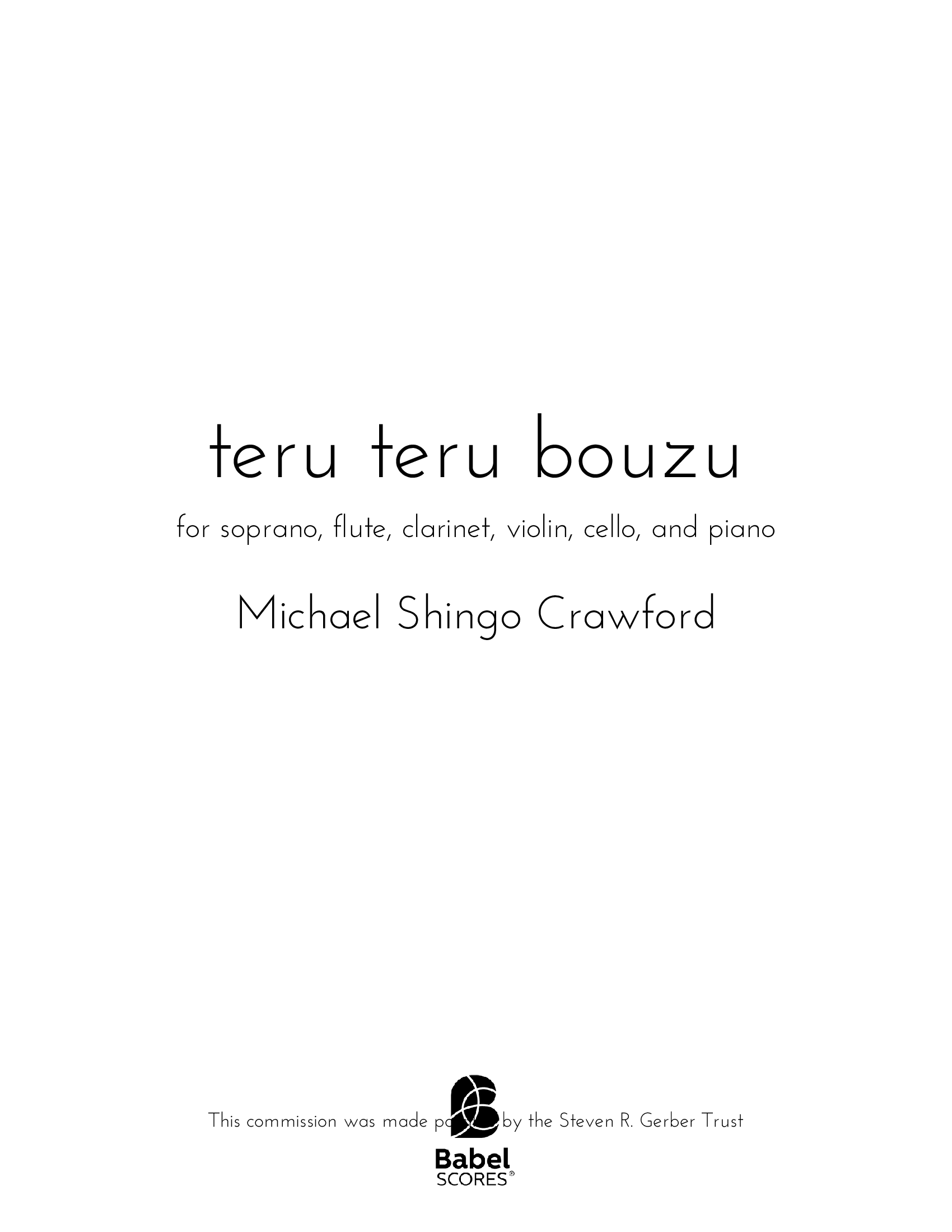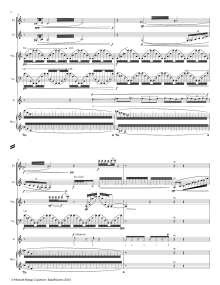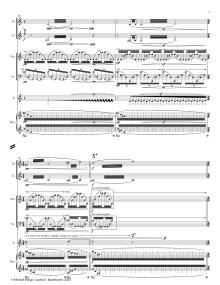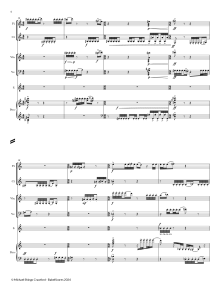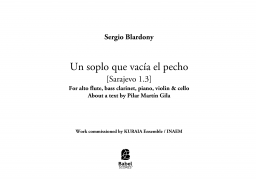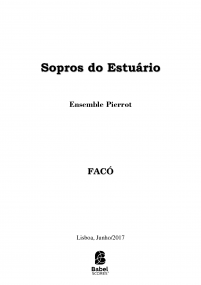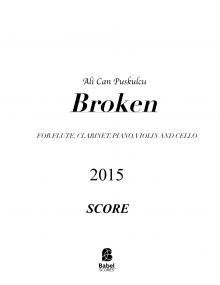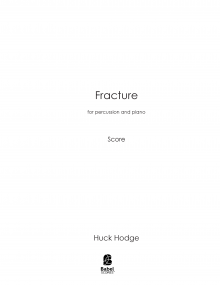teru teru bouzu
for pierrot ensemble
9,50 €
Versión digital (+0,00 €) para descarga
Versión impresa (+14,80 € impresión y envío). Colissimo7-14 days aprox.
Al comprar una partitura, usted puede contactar al compositor aquí mismo!
Especificaciones
Region
North America (Canada - USA)
Estimated Duration
6 - 10min
Date
2018
ISMN : 979-0-2325-7994-8
Videos alrededor de ésta pieza
Descripción
Add to list
- Login to create your own lists
teru teru bouzu is a resetting of the text from a Japanese children’s song of the same name. The lyrics speak of teru teru bouzu, a handmade doll crafted by children that is believed to bring good weather. While it is not often sung, the final line, “Then I’ll cut off your head, snip!” brings an unexpectedly dark turn to the song. This becomes the focal point of the reimagined music. The text now becomes sinister and foreboding with the implication of a crazed mental state. Rather than a child wishing for clear weather on the following day, the narrative transforms into that of a woman, steeped in superstition, desperately making offerings to the teru teru bouzu to grant her wish. The opening section sets the atmosphere of the piece. The voice sings fragmented sounds from the first line of text, which meld into the textural effects produced by the instruments. Motivic fragments from the original song begin to appear as well. The clarinet cadenza marks a transition into the second section and the setting of the first stanza. Following this, the music reflects on what has been said with isolated portions of the text interspersed. With the onset of the second stanza, the music reaches a point of greater energy and faster tempo. The singer’s offering of “sweet sake” to the teru teru bouzu comes with a sense of drunken revelry, reinforced by quotations of Camille Saint-Saëns’ Bacchanale from Samson and Delilah. The soprano becomes increasingly insistent in her demands with the obsessive repetition of “kiite” (“listen!”) before the instruments erupt into a climactic return of opening material, leading into the final stanza. The music now retreats into hushed tones with an intensifying menacing quality. The incorporation of quarter tones and glissandi represent a bending and breaking of the singer’s sanity. With an onomatopoetic “chon!” she threatens beheading in a rather Berliozian manner. In the final aleatoric passage, the instruments produce sounds that imitate rain, implying that the teru teru bouzu failed to grant her wish.
Instrumentation
Flute
Clarinet
Piano
Soprano voice
Violin
Cello
Clarinet
Piano
Soprano voice
Violin
Cello
Score Details
Format - A4 / US Letter
Pages - 38
Pages - 38

